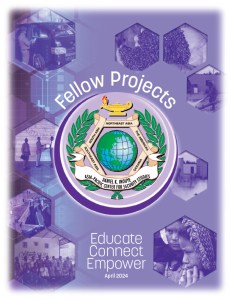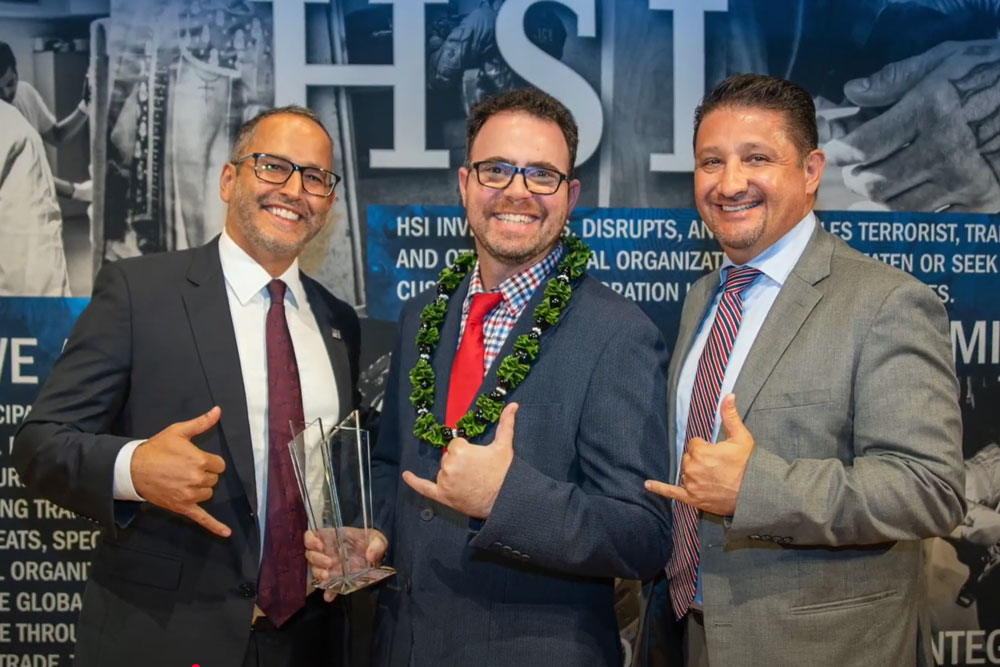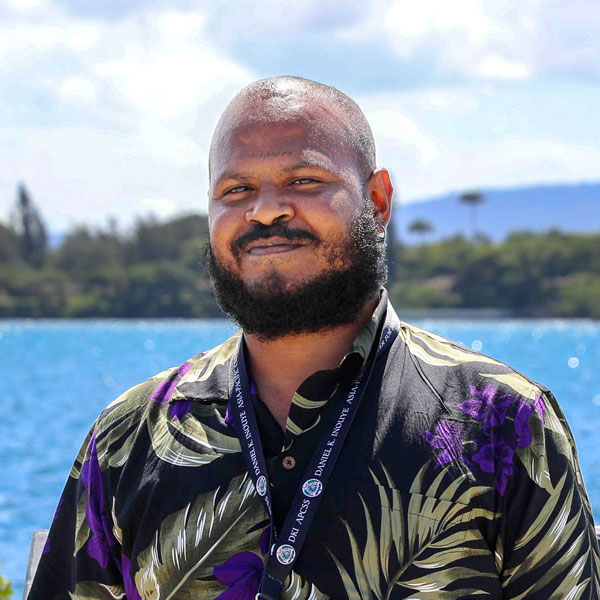Fellow Project is an integral part of DKI APCSS’s long courses. It requires participants to undertake a project demonstrating their expertise by applying their acquired knowledge and skills. This process includes:
- Collaboration and Networking: Fellows work together and engage with faculty and experts, fostering relationships and mutual understanding.
- Perspective Sharing: Discussing local, national, and regional security challenges enhances networks and deepens understanding of a rules-based order and a free and open Indo-Pacific region.
- Research and Analysis: Fellows leverage their experience to research a specific topic, increasing situational awareness, creating viable options, and forming practical recommendations through critical thinking.
- Expand capacity for critical thinking
- Practice querying, dialogue, cooperation, and connecting with key stakeholders
- Hone inquiry skills for future work
- Produce outcomes of real-world value

Read the latest fellow’s project booklet to celebrate their achievements and discover how their work fosters a secure and prosperous region.
- Individual Fellow Project: Each fellow undertakes a project focusing on a specific challenge related to a policy, program, process, or practice. This project is completed independently, allowing the fellow to apply their unique insights and expertise.
- Cohort Project (Group Project): In this format, fellows collaborate on a group project. To participate in a Cohort Project, each fellow must be preselected by their respective country’s embassy and DKI APCSS. This collaborative approach encourages teamwork and leverages the diverse perspectives of the fellows involved.
* If your country wishes to send a team to work on a Cohort Project, inform the US Embassy, the DKI APCSS Recruiter (recruiter@apcss.org), and the Fellow Project Team (fellowsproject@dkiapcss.net).
Fellow Project Highlight
Project Phases
| Fellows Project | Cohort Projects | |
|---|---|---|
| Before Course |
|
|
| During Course |
|
|
| After Course |
|
|
Latest News and Guest Speakers
Roundtable with Senior DKI APCSS Thai Alumni
While visiting Thailand in July, DKI APCSS Director Suzanne Vares-Lum conducted a senior alumni roundtable. Nine alumni attended the meeting which focused on DKI APCSS programs such as Fellows projects and a new mentoring program. Three alumni have offered to be mentors for future Fellows, and the Thai Alumni Association offered to take an active role in future Alumni mentor recruiting and matching with Fellows. Participants also shared their reflections on the current security situation in Thailand.
Fellow Project Highlight: Money Launderers Who Exploit Hawai‘i Real Estate
James Ward, an alumnus of the Comprehensive Security Cooperation Course (CSC) 22-1, describes his time at DKI APCSS as “transformational” and pivotal in advancing his professional trajectory. Among the most significant outcomes of his experience was the development of his Fellow Project, which tackled the pressing issue of real estate money laundering in Hawai‘i.
Karakoa Forum Launched in Manila
MANILA, Philippines – The Department of National Defense (DND) and the National Defense College of the Philippines (NDCP) hosted a two-day Karakoa Forum in Manila on April 25 and 28, 2025, in partnership with the Daniel K. Inouye Asia-Pacific Center for Security Studies (DKI APCSS). A team of five DKI APCSS faculty members — Dr. Ginnie Watson, Professor Mike Burgoyne, Dr. Sam Mullins, Col. Matt Kent, and Maj. Kyle Brown — traveled to the Philippines at the invitation of the government to support the launch of the inaugural forum.
DKI APCSS Supports the 5th Thai Senior Security Studies Program
The Royal Thai Armed Forces’ Strategic Studies Center of the National Defense Studies Institute (NDSI) recently hosted the fifth Senior Security Studies Program (SSSP). The intensive, one-week course for senior Thai security sector leaders was held in Bangsaen, Chonburi, and focused on the impact of regional changes and the capacity of leaders and institutions to manage those changes. Two faculty members from the Daniel K. Inouye Asia-Pacific Center for Security Studies (DKI APCSS) once again participated in the course.
Transnational Security Cooperation Participants Explore Strategic Challenges in the Indo-Pacific
Thirty senior leaders participated in the Transnational Security Cooperation (TSC) course hosted by the Daniel K. Inouye Asia-Pacific Center for Security Studies from July 14-19, 2024, in Honolulu. TSC 24-1 is an in-depth executive education program designed to prepare senior security practitioners and military leaders to engage in cooperative security efforts that advance a free and open Indo-Pacific.
DKI APCSS hosts Defense Industrial Base Resilience Workshop
As supply chain issues garner headlines around the world, the Daniel K. Inouye Asia-Pacific Center for Security Studies hosted a high-level workshop entitled “Building Collective Defense Industrial Base Resilience.” The two-day workshop was held [...]



















